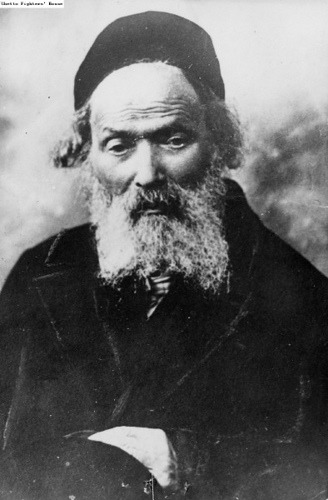By this time, the entire world has been exposed to the story of the poor 17 year old bachur who's act of davening Shachris, the morning prayer service of the Jewish people, resulted in the diverting of a small commuter aircraft from its route. On the surface, it is an "oy vey" moment. How could the aircrew be so uninformed? How, after questioning the passenger and observing his behavior could they still "error on the side of caution"? Never mind that tefillin are described in the Torah and have been worn since the time of Moshe. On the one hand, the most knee jerk reaction is to deem the flight crew ignorant and ill-trained. Surely, they must have heard of tefillin? Certainly, in training, they are taught about unusual religious practices they could see during a flight?

These doubting questions are natural, which is a good indicator that a sensitive Jew should not judge these goyim so harshly. Instead, think of the wonderful opportunity afforded to share with the world the practice of wearing tefillin. Every major news service, print, audio, television and Internet have discussed tefillin today. Amazing!!!! Gentiles world over have learned that Jewish men wear tefillin in the morning. And this is true even as we read in this week's parasha, Bo the first command to wear tefillin (Ex 13:9 - And it will be for you a sign on your hand and for a remembrance between your eyes...)
It is an unnatural thing to do, to see the positive in the strange. But indeed this situation can be a turned into light, a kiddush HaShem, for such is the way of a Jew. The message that HaShem runs the world can be taught even at the cost of flight delay. Even in a cramped commuter plane, a Jew can still be a Jew - tefillin and all. Now, all those who are lax in their observance of tefillin have no excuse. If only their non-Jewish colleagues, friends, co-workers and acquaintances would ask every day, "did you wear tefillin this morning?"
Having experienced putting on tefillin during a flight (albeit pre-9/11), I think the following advice might be useful to Jewish men who will be flying during morning davening time. First, tell a member of the flight crew before you start to daven what you are about to do, that you will be wearing particular religious garments and most importantly, that what you are about to engage in is a daily routine, not just today, on this aircraft. If possible, take some literature with you that will support your position. Be humble, not pushy - poised, not erratic. Explain to the other passengers seated next to you and explain to them what is happening in the event they are questioned. "During part of my prayer service I am unable to speak unless it is an emergency. If someone asks me what I am doing, please relate to them what I related to you". Incorporating is a very powerful tool.
The potential impact of the story will be determined by the decision making process which some Jews, who may not yet be so secure in their yiddishkeit will go through when deciding to publically wear tefillin or not. A Jew might think, do I really want to put on tefillin with all these other people around? Non-Jews might laugh or stare or G-d forbid think me crazy. Maybe that Jew believes it to be dangerous?
These are fears which are caused by a galus inspired weakness. Maybe that same Jew could or should think instead, "these people looking at me are astounded that my faith is so strong; that I am oblivious to my surroundings". The fear is shifted to its proper place. It is the goy or not yet strong Jew who then thinks, "I could never do that". The answer to that theorized inquiry is, "I am a servant of HaShem and he commanded me to put on tefillin". Such faith is not scorned or ridiculed but admired, maybe quietly, maybe enviously, but admired.
This bachur and his tefillin were very powerful, enough to divert a flight in progress. That's some davening!!! What power a single Jew possesses! The non-Jewish world should see Jews davening in tefillin more often. Tefillin is a sign, a segula, a branding of the wearer as in service to G-d. The Jew wearing the uniform of HaShem's service, testifying to all who see him that HaShem is the boss, not just the captain, but the air traffic controller as well.
Below, Rabbi Posner writes about the various meanings of a "sign".
Bindings - Rabbi Zalman Posner, Chabad.org - an excerpt from Think Jewish
A nice tefillin story:
Tefillin on the Train
























































0 comments:
Post a Comment